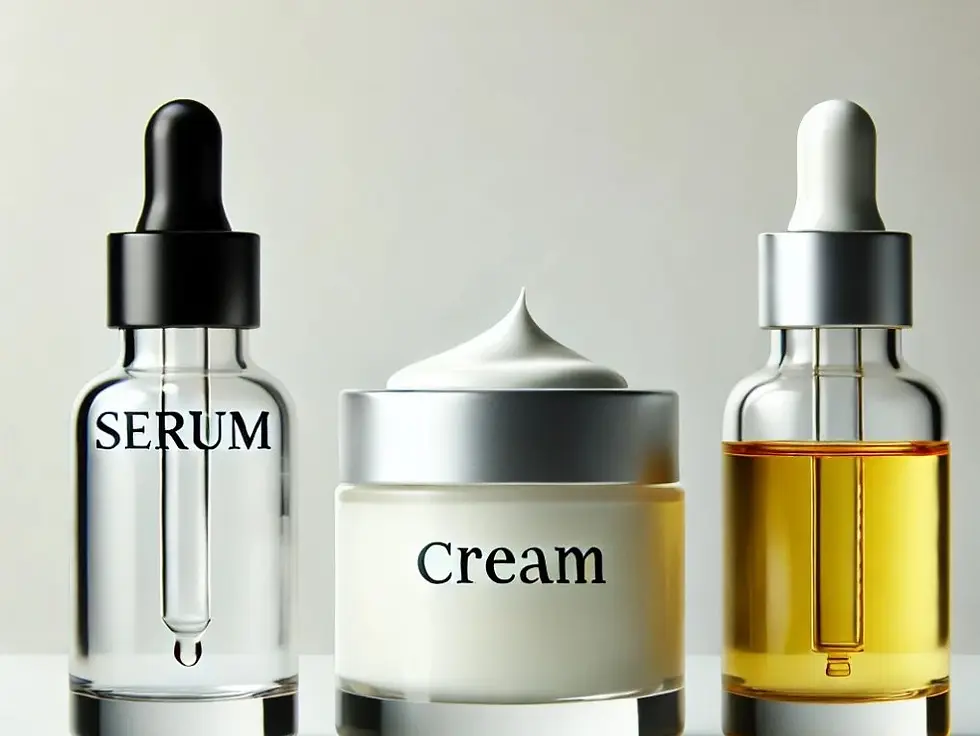How to Treat Back Acne ?
- Angéline Poulouin
- Jan 8, 2025
- 4 min read
Updated: May 24, 2025
Cleanse Your Back Regularly :
Use a gentle soap or cleanser containing salicylic acid or benzoyl peroxide to remove excess sebum and dead skin cells.
Exfoliate Your Skin :
Exfoliate once or twice a week with a gentle scrub to prevent pore blockage.
Avoid Tight Clothing :
Opt for loose and breathable clothing to avoid excessive sweating and friction on your skin.
Shower After Sweating :
If you exercise or sweat a lot, take a shower promptly to prevent sweat from worsening the acne.
Moisturize Your Skin :
Use a non-comedogenic moisturizer suited to your skin type.
Avoid Popping Pimples :
This can worsen inflammation and cause scarring.
Spot Treat the Affected Areas :
Apply a topical treatment containing salicylic acid, retinol, or benzoyl peroxide directly to the affected areas.
Consult a Dermatologist :
If the acne persists or is severe, a dermatologist may recommend specific treatments such as prescription creams, antibiotics, or oral treatments (like isotretinoin).
If you have additional questions or need more specific recommendations, feel free to ask !
What is acne?
· What causes acne? Acne is caused by an overproduction of sebum, blockage of hair follicles, proliferation of bacteria (such as Cutibacterium acnes), and localized inflammation.
· Is it a skin disease or just a hormonal imbalance? It is a skin condition influenced by hormonal, environmental, and genetic factors.
· What are the types of acne?
Mild acne: Blackheads and whiteheads (comedones).
Moderate acne: Red papules and pustules.
Severe acne: Nodules and cysts that may lead to scarring.
Who is affected by acne?
· Why is acne more common during adolescence? During adolescence, increased hormones (androgens) stimulate the sebaceous glands, leading to excessive sebum production.
· Can adults have acne? Yes, adult acne often affects women (hormonal imbalances, stress, or occlusive cosmetics).
· Is acne hereditary? Acne has a genetic component: if your parents had acne, you are at higher risk.
What causes acne ?
· Do hormones play an important role? Yes, hormonal fluctuations (puberty, menstruation, pregnancy, birth control pills) stimulate the sebaceous glands.
· Does stress worsen acne? Yes, stress can exacerbate acne by increasing cortisol levels, which promote inflammation and sebum production.
· Do certain foods cause acne? Foods high in fast sugars (high glycemic index) and some dairy products may worsen acne in certain individuals.
· What is the relationship between acne and cosmetics? Occlusive or comedogenic products can clog pores, worsening acne.
What are the treatments for acne ?
· Are topical treatments (creams, gels) effective? Yes, products like benzoyl peroxide, retinol, or salicylic acid are effective for mild to moderate acne.
· What oral medications can be used ?
Oral antibiotics: To reduce inflammation.
Birth control pills: To regulate hormones in women.
Isotretinoin: For severe cases (very effective but requires strict medical supervision).
· Do natural treatments work? They can help (e.g., tea tree oil, aloe vera), but they are generally less effective than medical treatments.
· How long does it take to see results? On average, 4 to 12 weeks, depending on the treatment.
How to prevent acne ?
· What products should be used to cleanse and moisturize the skin? Use gentle, soap-free cleansers and non-comedogenic moisturizers suited to your skin type.
· Can diet help prevent acne? A diet rich in fruits and vegetables and low in refined sugars may reduce the risk.
· How to avoid acne scars? Do not pick at pimples and consult a dermatologist promptly for severe cases.
· Is it better to see a dermatologist or use home remedies? For moderate to severe cases, it is better to consult a professional.
Does acne leave scars ?
· How to treat acne scars? Options include chemical peels, fractional laser, microneedling, or filler injections.
· Can scars be avoided if you have severe acne? Yes, with early treatment and by avoiding manipulating the pimples.
· Do red or brown spots fade over time? Yes, they generally fade within a few months, but brightening creams can speed up the process.
What myths exist about acne ?
· Should you stop wearing makeup if you have acne? No, as long as you use non-comedogenic products and remove your makeup thoroughly.
· Does acne always disappear after adolescence? Not always: some people continue to have acne into adulthood.
· Does the sun help treat acne? The sun may temporarily reduce lesions but worsens acne in the long term (thickening of the skin and increased sebum production).
What are common mistakes to avoid ?
· Is it bad to touch or pop pimples? Yes, this can worsen infection and lead to scarring.
· Why do some treatments seem to worsen acne at first? Some treatments (e.g., retinoids) cause an initial "purge," where the skin adjusts before improving.
· Can you combine multiple treatments? Yes, but under medical supervision to avoid irritation or negative interactions.
Let me know if you’d like to refine or expand on any specific part!


.jpg)




Comments